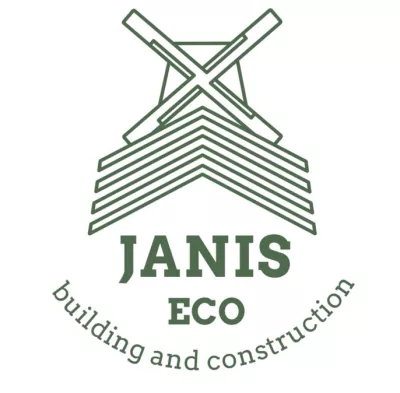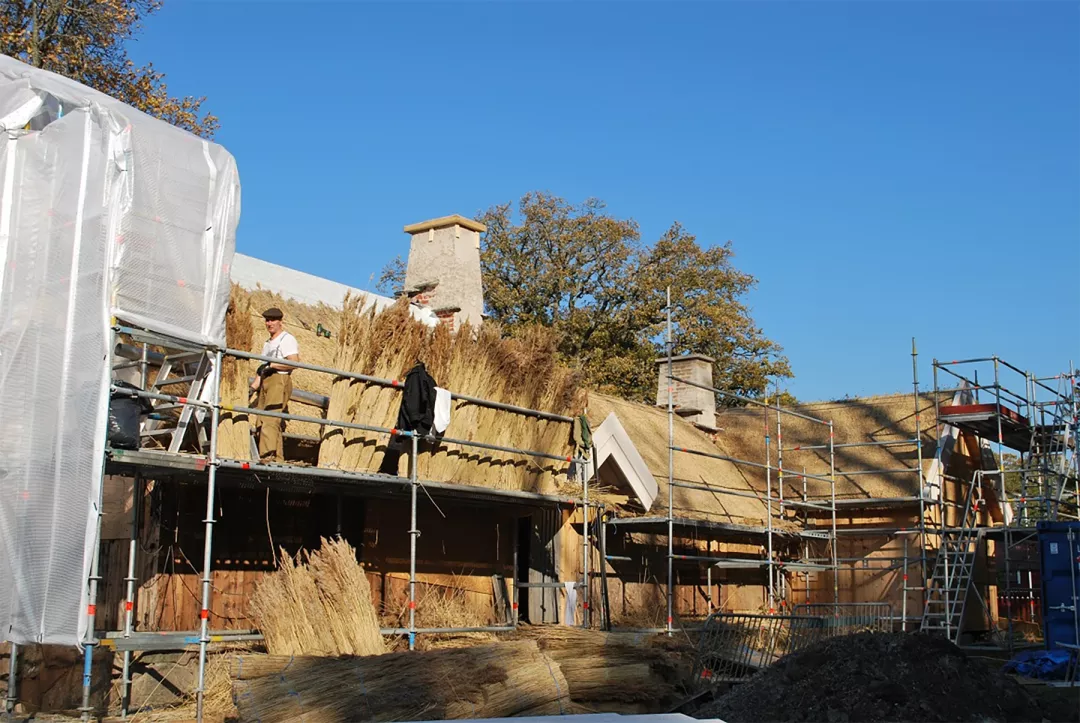General information
RDP Priority
- P6. Social inclusion and local development
RDP Focus Area
- 6B: Local development
RDP Measure
- M19: LEADER/CLLD
Beneficiary type
- Small-Micro Enterprise
Summary
In the past, people built homes from the raw materials that were available around them. This included reeds and straw for the construction of roofs. The entrepreneur Jānis Pucitis identified an opportunity to set up a new business based on this traditional, environmentally friendly and energy-efficient solution. He used CAP support from LEADER to purchase the necessary equipment and machinery for cutting and processing the organic reeds he uses as raw material for his trade.
Results
- A new business was created, ensuring an increased income and employment for the beneficiary.
- Two young people were hired as apprentices, to pass on this ancient and historically important craft.
- The use of organic reeds and straw for roofs has several climate and environmental benefits, including the reduction of greenhouse gas emissions, increased carbon sequestration and conservation, and the preservation of biodiversity.

Promoter
Jānis ECO B&C Ltd.
Funding
Total budget: 16 746 (EUR)
EAFRD: 6 420 (EUR)
National/Regional: 3 457 (EUR)
Private/own: 6 869 (EUR)
Resources
Documents
Context
Only a few centuries ago, in Latvia and across Europe, very different materials were used for roofing. These included straw, reed, shingle or chip roofs, and the reason for this diversity was simply because people used whatever was available in their area. Nowadays this is no longer the case, and the skills to make use of these local, natural materials are being lost.
Jānis Pucitis realised that there was no company in his local district providing a sustainable roof-building service, and therefore decided to set one up, specialising in straw and reed, which are environmentally friendly and energy-efficient roofing solutions. In order to establish his business he travelled to Sweden to acquire the necessary knowledge and skills from a practicing craftsman.
As conventional agriculture often uses technologies that limit the height of cereal crop stems, Jānis is obliged to use organically grown "Kaupo" rye straw to construct his thatched roofs. This variety can grow up to two meters long, which is the optimum length for a high-quality straw roof.
Jānis cooperates with nearby farms through an agreement. The farms grow organic rye for baking bread, and they provide him with the straw. Jānis harvests the rye grown by the farmers himself, threshes it and prepares straw bundles to use as roofing material. He then returns the grain to the farmers.
In order for the straw to be used for roofing, it is very important that it is cut and threshed properly. The straw must not be broken or damaged, as otherwise it will not be able to provide protection against the weather. Jānis needed to purchase a special mower for this purpose.
Objectives
The aim of this LEADER project was to support the development of a new rural business through the purchase of key equipment. The business supports one livelihood, which, alongside providing a steady income to its owner, also contributes to environmental protection and the preservation of traditional skills.
Activities
For the preparation of his straw bales, Jānis used CAP business development support from LEADER to purchase a mower-ball seeder and a feed conveyor.
Main results
- A new business - ‘Jānis ECO B&C’ - was created, ensuring an increased income and sustainable employment for the beneficiary.
- Jānis hired two young people as apprentices, to pass on this ancient and historically important craft.
- The use of organic reeds and straw for roofs has several climate and environmental benefits, including the reduction of greenhouse gas emissions, increased carbon sequestration and conservation, and the preservation of biodiversity.
Key lessons
- Businesses based on traditional rural skills and natural materials offer vital alternative solutions to conventional building and construction.
- Traditional rural skills are part of our shared cultural heritage, so it is crucial that they are preserved.
Our task is to install straw and reed roofs 100% according to the accepted guidelines and local methods. It provides roof quality, service life guarantee, delights the owner, and makes us satisfied with a job well done.
